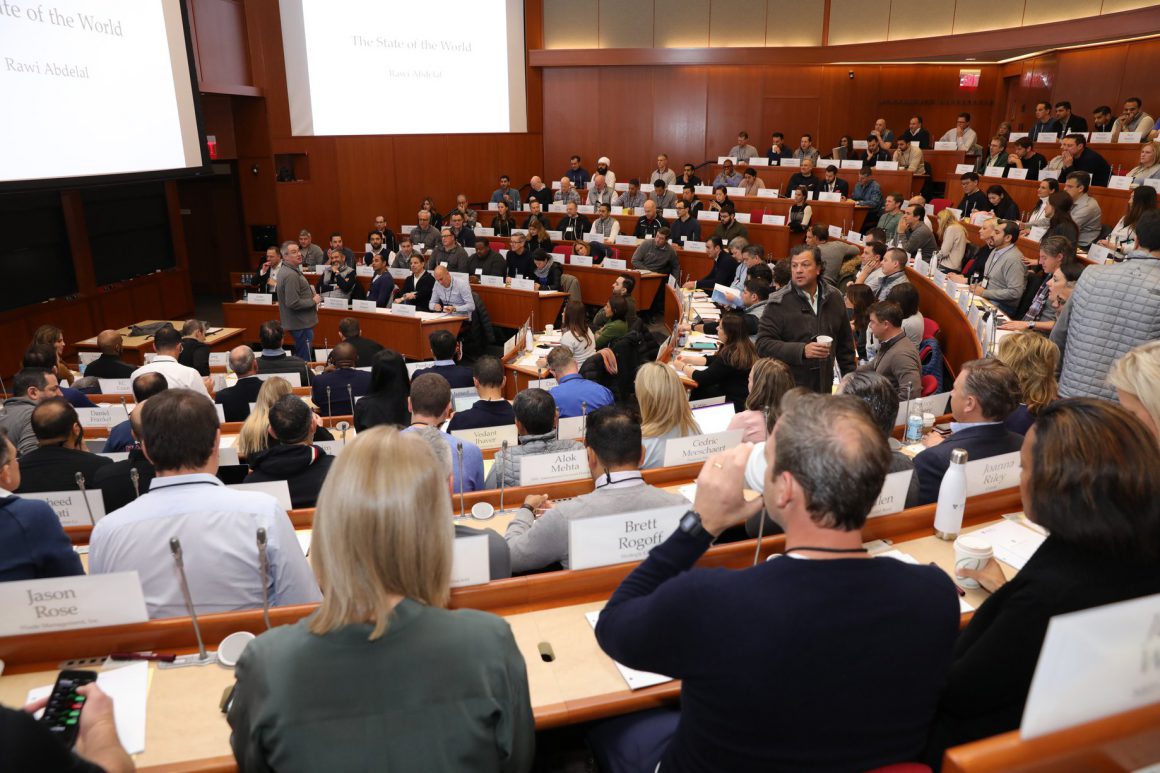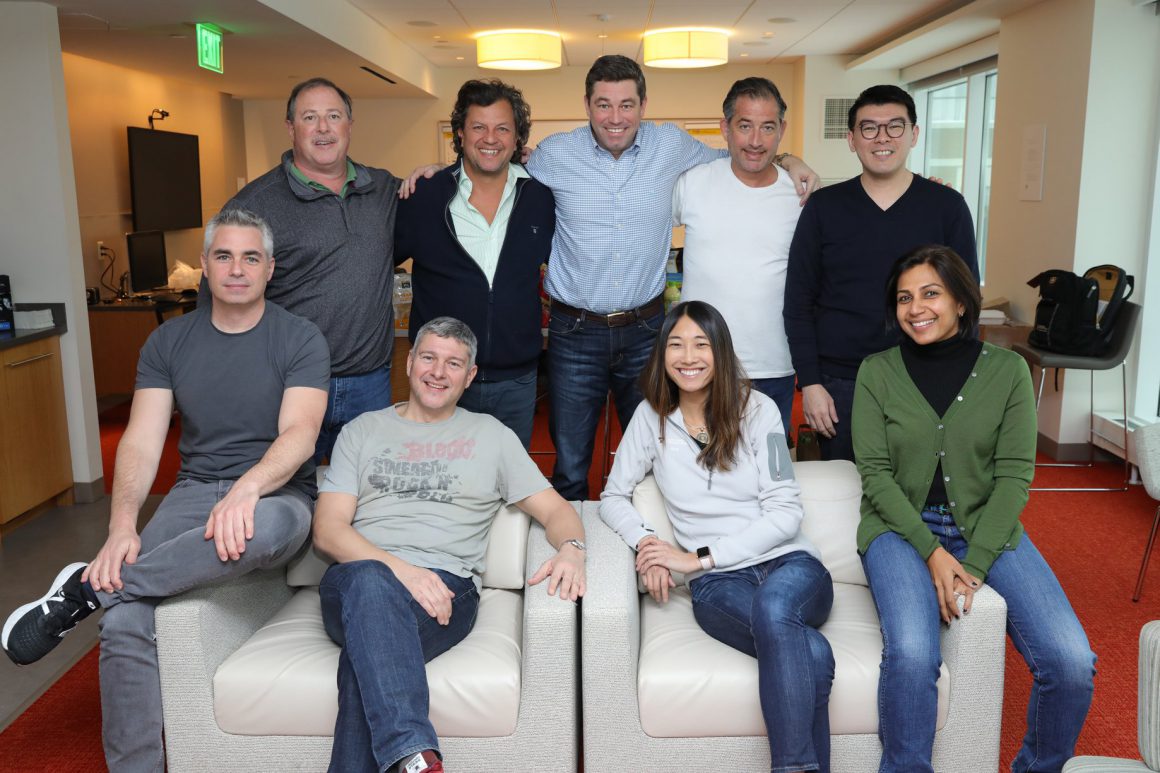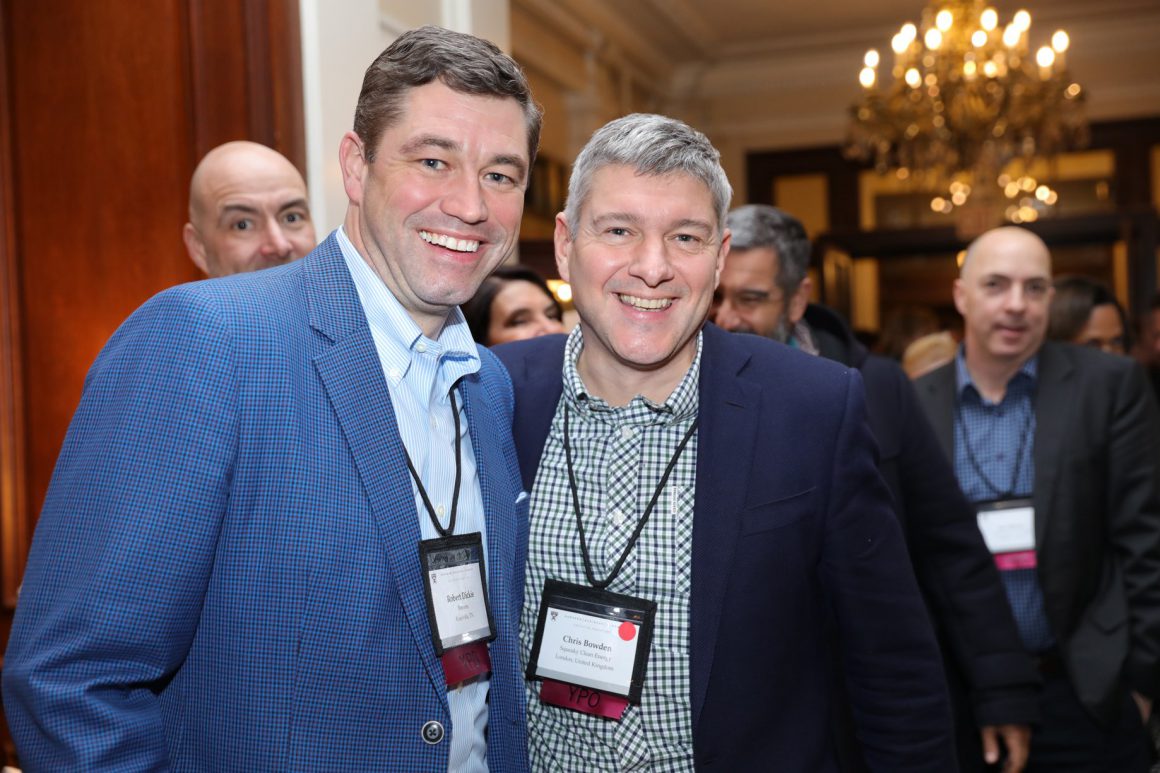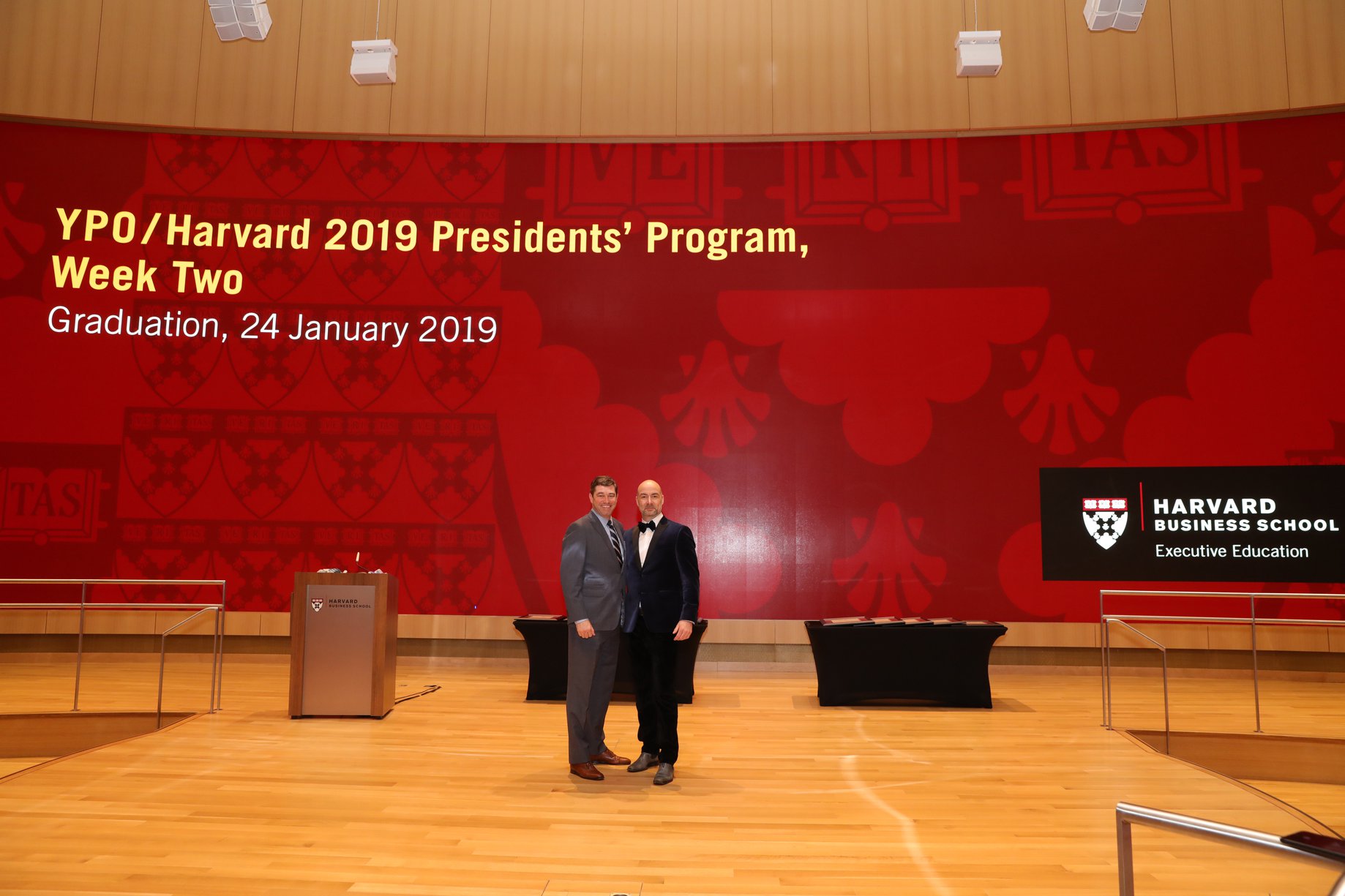Can you recall the last time you were learning intentionally? The last time you set aside time and energy to just focus on learning? For most people, the first thing that comes to mind is high school or college. Oftentimes, the diploma or degree means the end of education. People believe once they have it, their education is finished. They get a job, and from there, their career is set.
For many generations, that’s been the traditional course. You go to school, maybe even college, get a job, and work for the same company the rest of your career. In our grandparents’ time, the knowledge they acquired in school was relevant and applicable throughout their careers. For them, it didn’t make sense to continue with more education. But our world today is much different from our grandparents’, it’s constantly changing everyday.

What They Teach at College
I was told by a Harvard Business School professor that the shelf-life of a college degree today is only three years. That means that three years after graduation, all the information you learned is outdated and irrelevant. I know what you’re thinking, what’s the point of a formal education then? Astro Teller, CEO of Alphabet’s (Google’s parent company) X company, told Stanford students that the most valuable skill you learn in college is how to learn. Therefore, the skill of learning will benefit you continually as your career evolves and industry changes.
Because we have tools such as Google that can solve complex problems and algorithms, there is less need to memorize information or facts. But, the important thing is that you can perform in ways that technology cannot. Thus, the skill to think through complex ideas or problems is a key skill in our new economy and ever changing society.
How does this apply to our workforce and employers today? It means it’s far more important to be able to learn and educate yourself than the material or information you gained in college. Unfortunately, finishing a degree no longer guarantees you a job. You have to continue seeking opportunities to learn, grow, and challenge yourself to remain valuable in today’s economy. I know this statement may seem heavy and daunting, but it’s a reality of our society. Former U.S. Army Chief of Staff Gen. Eric Shinseki has a popular phrase: “If you don’t like change, you’re going to like irrelevance even less.”
If you want to stay competitive, you need to continue to stay educated and updated on industry knowledge. Executives and leadership of your company will determine who on their teams should move up or move out on decisions like these. They’ll see who is consistently challenging themselves with new skills or projects, who is taking additional courses outside of work, who is reading and staying up-to-date with industry news, coming up with new ideas, and thinking through complex problems. At the same time, they’ll see those who simply come to work, do the bare minimum, and check out at the end of the day.

Continuous Education Benefits You In Other Areas of Your Life
Continuous education will change your career in incredible ways, but it can also benefit your life in personal ways too.
Your Confidence
It seems obvious, but continuing your education makes you more confident in your knowledge and abilities. You won’t stutter over your words at your next work event as you think of something to share that’s relevant and insightful to share. You’ll have an opinion ready to share. When your team comes across an obstacle or challenge, you’ll know what to do because you’ve been reading about what other companies are doing or the latest technique that adheres to that issue.
I have people often ask why I participate in continuous education and why I spend so much of my time reading and studying. I’m not getting paid for this time or investment of my energy and effort, but I personally view it as a part of my job to learn new information as it helps me become a better leader, father, husband, and coworker. It is one of the reasons I am so passionate about the New Way MBA program and why I read so many books. Continuous education has had an incredible impact on my career and I know to be a top performer I need to be learning daily and then APPLYING that knowledge to my business and life.
Your Relationships
You are more innovative and creative when you’re constantly learning. You are more apt to introduce ideas and out of the box ways to solve problems that help you get recommended for more opportunities at work. Additionally, innovation spreads allowing other people to challenge you and push you. Those people often serve as powerful mentors and contacts throughout your career. That’s not all though, staying educated also helps with your family relationships too. It’s opened my eyes to multiple ways I can learn from being a parent to my children. No two children are the same. Each child communicates and responds to discipline differently, and when I’m aware of that, my kids flourish. It’s the same thing for married couples. When you have a posture of wanting to learn more about your spouse, your marriage will only be strengthened as you work to understand and communicate with one another.
The most important thing I’ve learned is that, whether in personal or professional relationships, never stop being curious. The minute you stop being curious and desiring to learn is the moment you start taking your spouse for granted, missing important moments in your kids’ lives, and miss opportunities to grow better relationships with others.
Your Stress Level
Your level of preparedness can also affect your stress levels. Being prepared is one of the best reasons to always be learning and one of your best combatants to stress. If I come to the office feeling disconnected from what’s going on in my industry and scrambling last minute to get my thoughts and notes together for a meeting, I feel stressed and get easily frustrated. But if I have been reading the latest news, staying up-to-date with recent books and trends, and intentionally seeking out information relevant to my organization, I feel calm and ready for whatever the day may bring. I can be confident in my abilities, and I don’t find myself worrying about being caught off guard. Studies have shown that stressed-out leaders make bad decision-makers, and I don’t want others to suffer because of my lack of preparedness. Whether you’re a top-level executive or entry level employee, having an attitude to learn will decrease your stress levels.

Making Time to Learn
It’s pretty easy to see why continuous education is so important, but it’s a lot more difficult to make it a part of your everyday routine. Most people say they don’t have the time to devote to it; they work all day, have kids’ activities to juggle, overcommitted to volunteering, have professional commitments, and are a part of many social groups. I can understand that life gets busy, and it can be easy to put off investments in ongoing education. But I truly believe that if anyone is committed to their family and future, they should make it a priority.
Several years ago, I hired someone to come on in a key leadership role within a company I was working for. He appeared to be the whole package: smart, hard-working, and a lot of good experience on his resume. But it quickly became obvious there were a few areas of his job that he was struggling with. I’d pass along a book I knew would be helpful to him when I observed a skill he was missing or a part of the industry he wasn’t knowledgeable in. After a few months, his performance didn’t change as he continued to lag. I went to talk to him about it one afternoon, and he handed the stack of books to me explaining that he had no time to read them. He had a son that he wanted to spend time with when he was out of the office. On that day, we began the process of letting this employee go.
This guy was a great candidate for the job, but he chose not to prioritize his education and learning, and that was not acceptable at our company. This is the prime example of earning your degree and believing it will carry you through the rest of your career. Perhaps, this employee felt the need to give up his career for his family, but the truth is that continuing to learn and stay educated is the factor that sets us apart from others. By choosing to prioritize reading, studying, and taking a class, I’m intentionally choosing the path that will secure my family’s future. I wasn’t asking this employee to value his work or those specific books I recommended over his family, and I’m not suggesting that to anyone. We make time for the things we care about, and if we make learning a priority, we will find time to fit it into our daily lives and make it a habit.
Here’s what I do to make learning a sustainable part of my life. One time is early in the morning after I do my prayer and devotions. I pick up The Wall Street Journal with my morning coffee, and it keeps me updated with the trends of the day. If you commute to and from work, your commute is also a great time to learn. I’ll often listen to an audiobook or business podcast in my car on the way to work, and you could do it too on your walk, drive, bus ride, or train ride. Another time is at night after the day is done. It’s easy to go home after a long day at work and simply watch TV, Netflix, or the latest sporting event, but realize too that you could use that time to learn in an MOOC course or by reading a book. It isn’t easy to add education into our busy, everyday lives and it will require some sacrifice and investment, but realize how important and valuable it is to your future and your family’s future.
Get Started Today
Here’s a few things you can do to get started with ongoing education today. Schedule a meeting with your mentor or someone you admire and respect and ask them about their area of expertise, their skills and abilities, and their experience. Additionally, find workshops relevant to your industry or role and go to them. Look at local night classes in your area and get registered. Or attend an event or conference in your local or regional area. As with most things in life, you have to figure out a structure that works for you that’s sustainable and integratable into your everyday life. If you start out small by incorporating small doses of education throughout your day, you’ll quickly find yourself more knowledgeable and intellectually revived. More importantly however, you’ll begin to see big payoffs at your job in little, everyday things but also in the long-term of your career.
At Bonvera, we recognize the constant changes in our economy and the need for continuous education for our entrepreneurs. With an education system built into our “business in a box” platform, it’s easy for entrepreneurs to get plugged into a system that provides books, audios, articles, and events and conferences to keep you up-to-date and equipped for the changing workforce demands. If you’re interested in learning more about our opportunity or education system, talk to your Bonvera entrepreneur. If you don’t have one, contact support@bonvera.com or call (316) 260 – 2225 to get connected to one in your area today.

